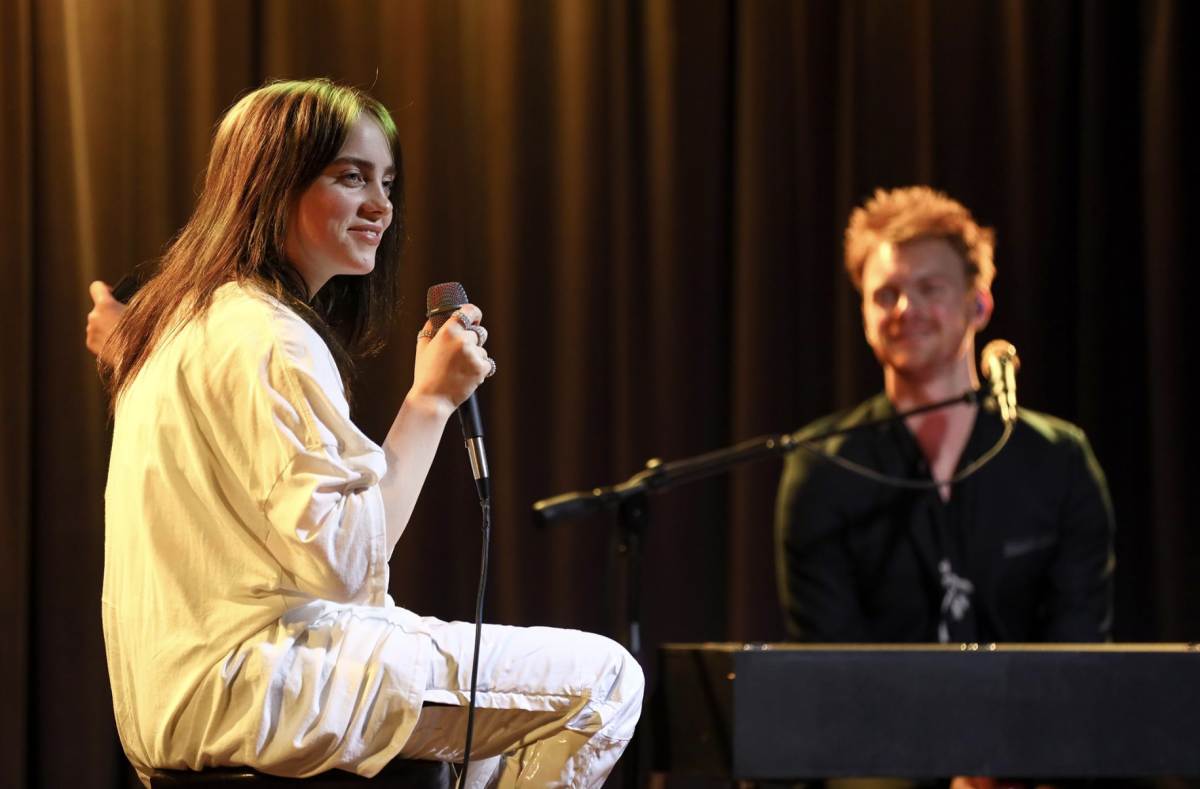
Rarely has any band arrived as fully fleshed-out as Fugazi.
“Waiting Room,” the first song on the band’s self-titled debut EP, still stands as one of its crowning achievements. Joe Lally’s sinister bass line, Brendan Canty’s powerful, but machine-like percussive precision and Ian MacKaye’s hurricane-like riffing all make for an overwhelming listen.
But with that overwhelming sense comes a truly unique thrill. From its first chords, Fugazi was unlike any band that preceded it. One gets the sense, listening to the group’s early work, that the band never set out to be anything but a singular ensemble in music, one that redefined punk both musically and aesthetically.
The band’s discography is almost bulletproof in its strength. Fugazi took risks and progressed at every single turn. But every step it took was calculated just enough so that the band would never truly fail or sound hesitant at any point. They were musicians who were distinctly in tune with each other, allowing them to provide a consistently united musical front at every point.
All of this is what makes “First Demo,” released Nov. 18, such a strange listen at times. Recorded at Inner Ear Studios in Arlington, Virginia in January 1988, “First Demo” shows a band which consistently stood head and shoulders over the pack in its infancy.
Just 10 shows into the band’s career, Fugazi is still putting together the pieces. All of the key musical elements, other than Guy Picciotto’s second guitar, are there. But the songs, many of which became so iconic for both the band and punk genre in general, are still being fleshed out. All of the intricate pieces of each track are still trying to find their place, waiting to settle in. But even if “First Demo” shows an incomplete portrait, the fact that you can see almost the whole picture, just 10 shows into the band’s career, is a testament to the band’s unshakable artistic vision.
The biggest initial shock comes on the demo’s opener, the aforementioned “Waiting Room.” The first sound on the track is Lally messing around a bit with a primitive bass line and some reverb. But the song’s iconic opening bass line never comes, as the band launches into the pummeling two-chord verse. During the song’s equally iconic pause, one can hear Lally playing with what would become the opening bass line deep in the background.
Overall, this version isn’t nearly as tight as the final product the band would eventually lay down on “Fugazi,” but it is a fascinating listen non-withstanding, a true glimpse into the song’s early development.
“Merchandise,” from the band’s 1990 album, “Repeater,” is also more skeletal, lacking the extra edge that Picciotto’s guitar playing would give it in its final version. “Furniture,” which didn’t see release until a 2001 EP of the same name, works as an exhibition for Lally. While the later version has a main riff played by MacKaye and Picciotto, the demo version is completely carried by Lally. His playing not only anchors the song, but adds emotional weight to the song’s mournful, almost claustrophobic tone.
Picciotto gets an impressive turn on lead vocals on another “Repeater” track, “Break-in,” while the demo take on “Badmouth” sounds as nimble and full as the version that ended up on “Fugazi.” “And the Same,” off of the band’s 1989 EP, “Margin Walker,” actually feels more expanded upon in demo form, its fantastic chorus really exploding with a sense of purpose.
“First Demo,” despite its age, feels like a reminder. Having been on an “indefinite hiatus” for well over a decade now, with no touring, reissues or greatest hits packages, we have not really heard anything from Fugazi for quite a while. “First Demo” shows the band’s roots, and just how quickly they gelled into one of punk’s defining acts, and one of the most consistently original rock bands of their age.
Previously unreleased, but incredibly powerful tracks like “Turn Off Your Guns” sound just as relevant as they did when the band first wrote them, almost three decades ago. “First Demo” shows a band that, practically as soon as they began playing together, were light-years ahead of its time, both politically and musically.
Jackson Maxwell can be reached at [email protected].


















